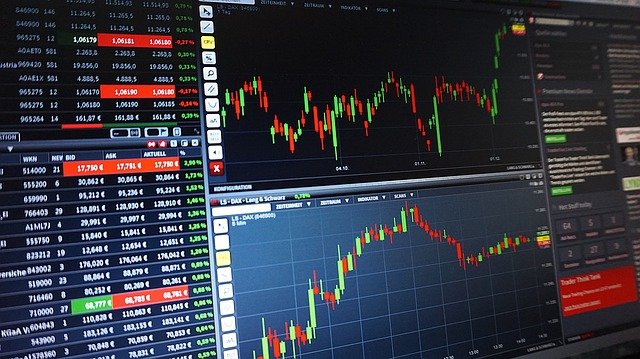by Paddy Osborn, Academic Dean at London Academy of Trading
Trading financial markets is not easy – and anyone who claims that there are guaranteed profits just waiting to be claimed is simply not telling the truth. Successful trading requires hard work and commitment, but also a good understanding of financial markets and how they work.
There are many different ways to analyse markets for speculation. You can look at fundamentals, politics or macroeconomic data to make your decisions, or maybe analyse charts and technical indicators. Whatever tools you use, there are some simple rules that you should follow to enable you to be the best trader you can be.

Firstly, work hard! As in any walk of like, the harder you work at a skill, the more proficient you become, and trading is no different. There’s no short-cut to becoming a consistently profitable trader. You need to acquire the relevant knowledge, learn the practical skills, and then practise applying them (ideally with some guidance from an experienced trader or mentor) on a demo account. Only once you have a structured process in place should you start trading with real money.
As you progress through your training, you will build self-confidence, which you will need to pull the trigger on your trades. Believe in yourself and your ability. Once you have taken the time to develop your trading strategy, you shouldn’t be afraid to take (controlled) risk in the markets. As your experience grows, you can use your successful trades to reinforce your self-belief.
It goes without saying that, in order to acquire the required knowledge and skills, you need education. It’s actually possible to get lucky and make money from trading without really knowing what you’re doing, but very very few people actually achieve this. Early success – perhaps due in a large part to luck – can actually be very damaging, since it tempts people to increase risk without control, and take short cuts instead of dedicating time and effort to get a proper education. Nobody – even clever people – can learn to become a successful trader over a weekend! You need to commit time and effort to learn the skills (and practise them) to recognise how to do things right.
As part of the learning process, a mentor can be an extremely valuable asset. There are thousands of hours of online videos explaining how to trade financial markets, but if you don’t get feedback on your trading as you start to apply your new-found skills, you could be applying the rules wrongly without even realising. You should find a role model or mentor whose advice you trust. Don’t just ask them for trade recommendations. Ask them about their trading process; how do they approach new trades, what rules do they follow, how and when do they enter the market. Getting feedback on your performance is one of the most efficient ways to identify your weaknesses and develop your skills as a trader.
Once you’ve developed the required skills and have started to trade, you need to take responsibility for your actions. Some traders are quick to brag about their good trades, while blaming their losses on bad luck or difficult markets, often seeing themselves as victims. All traders lose money from time to time – it doesn’t make you a bad trader. But if you blame “the market” for your losses, then you won’t be able to recognise your own failings. You need to be honest with yourself about your trading decisions. If you fail to accept responsibility for mistakes, then you’ll keep making the same mistakes time after time.
This leads to another rule – learn from your mistakes. Everyone makes mistakes, but successful traders learn from their mistakes and rarely repeat them. Losing money on a trade can be painful, so it’s human nature to try to minimise this pain by brushing these bad trades under the carpet. This is the worst thing you can do! You’ve paid out some money (by losing on the trade), so make sure to get some value from it. Go back and review each trade. Are you following your normal processes? Should you have taken the trade in the first place? Could you have avoided or reduced this loss? Would you do things differently next time? This five-minute review at the end of your trading day may be the most valuable five minutes of your day.
Aside from needing fundamental and technical knowledge, trading is also an emotional exercise. Failing to maintain psychological control is the number one reason that traders fail to perform to their potential. Internal pressure to succeed can add to this psychological pressure, so you should try to avoid setting purely monetary goals. If you fix a monetary target each day and your day starts badly, then this pressure mounts exponentially. Instead of setting monetary goals, you should set short, medium and long term process goals. These should be specific and achievable processes which you can execute through all situations. Also, make sure to track your progress against your specific goals, and remember to review your trades to check that you are maintaining your discipline and control. If you can stick to your process goals, then you’ll trade with discipline and the profits will come.
Finally, patience is a virtue. Deciding not to take a trade is still making a trading decision. Don’t just enter trades because you’re sitting at your desk and you feel you should be trading. The markets are not going anywhere, and there will always been opportunities in the future. Be patient and wait for the right opportunity. Successful traders have patience, and they understand that true success takes time to achieve.


